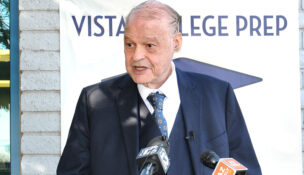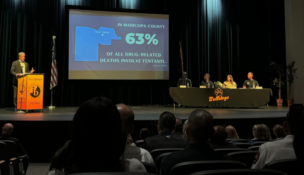Douglas uses public employee, state email system to endorse Trump
Howard Fischer, Capitol Media Services//September 6, 2016//[read_meter]
Douglas uses public employee, state email system to endorse Trump
Howard Fischer, Capitol Media Services//September 6, 2016//[read_meter]
Superintendent of Public Instruction Diane Douglas (Photo by Howard Fischer, Capitol Media Services) State schools chief Diane Douglas used a public employee and the state email...

















